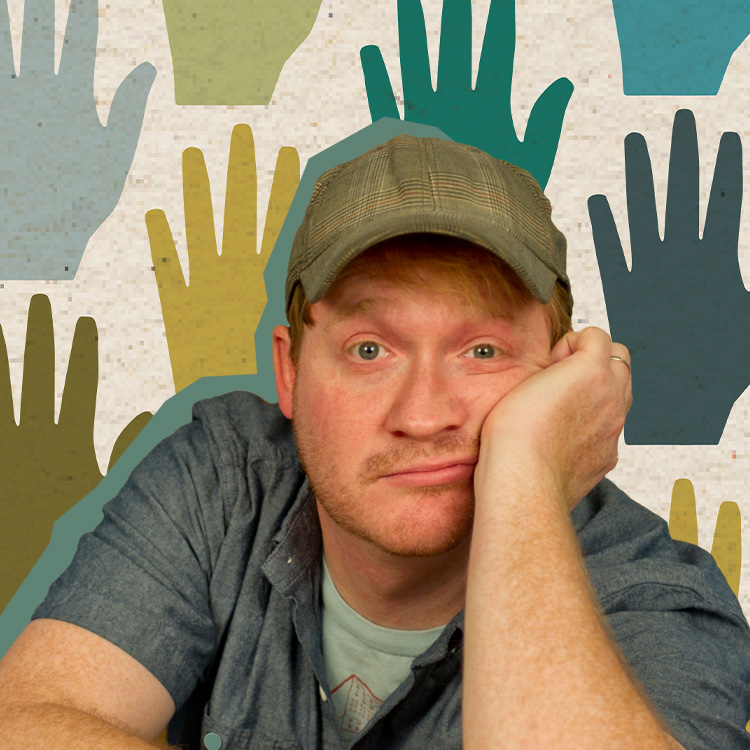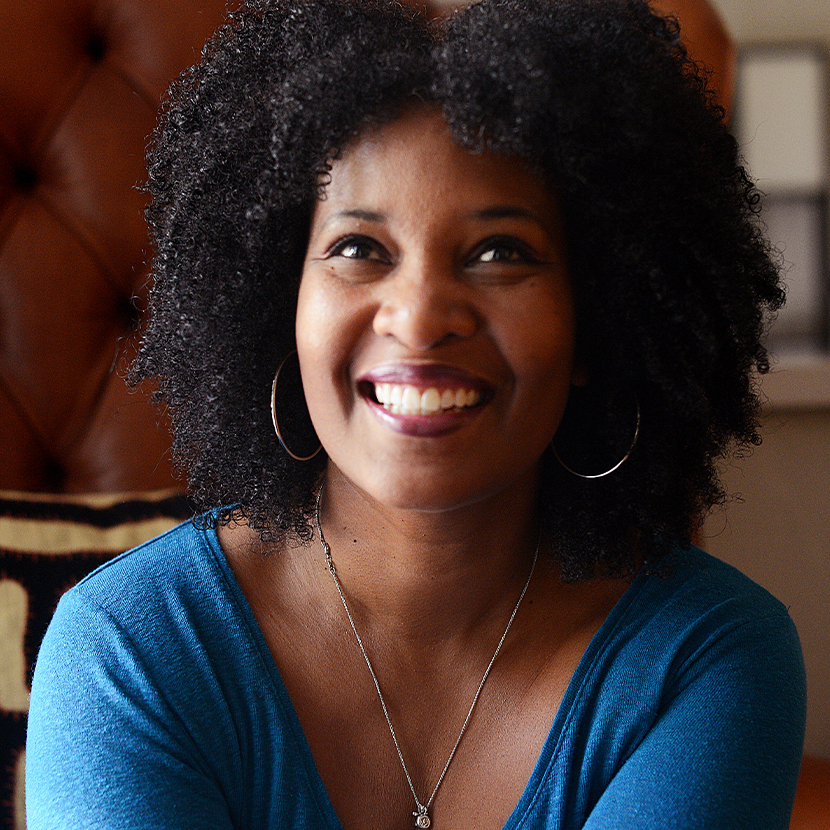Montague Workshop, which Brad Montague founded with his wife, Kristi, strives to “joyfully rebel against the way things are and attempt to create the world as it should be.” And its output — videos; popular books for kids (and, to be fair, “former kids,” as Brad refers to adults); and their weekly newsletter, “The Enthusiast”— has done just that. This is especially true of Brad’s Kid President series, featuring a bright-eyed then 9-year-old “Kid President” in a suit and red tie.
Robby Novak, Brad’s brother-in-law, played the Kid President, and the series offered up pep talks on everything from how to change the world to what makes an awesome leader (even a real president took notice).
Just like his hero Fred Rogers, Brad is on a mission to empower kids to believe in themselves and their abilities to change the world. In the process, he helps us “former kids” to believe the same things about ourselves, too.
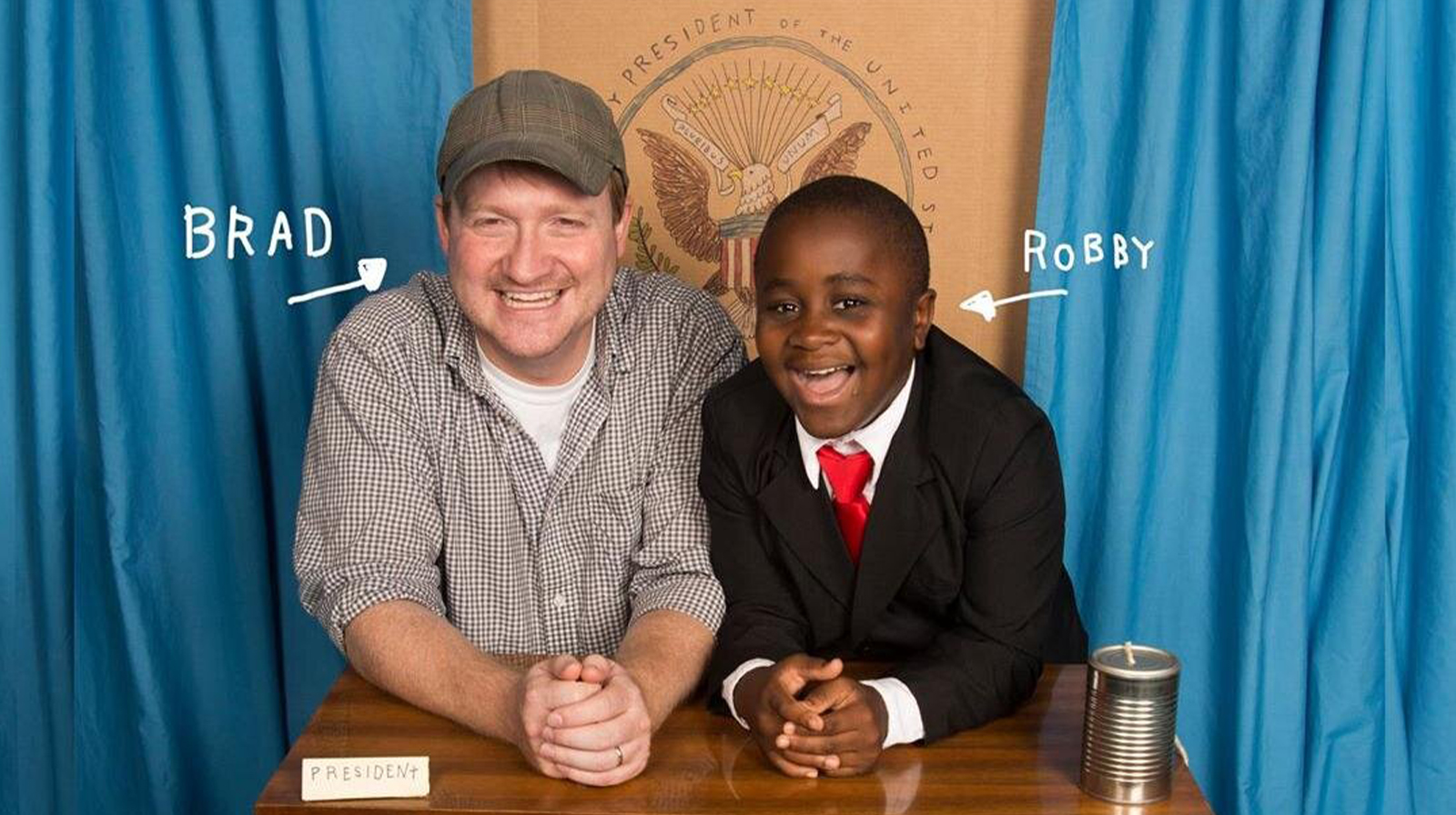
Kid President’s first pep talk caught on like wildfire, much to your astonishment. What did you intend when you made it?
Kid President was a creative experiment I’d started with my young brother-in-law. Creating the videos had been a fun way for us to spend time together and share encouraging things with people online. I’d already made several Kid President videos but decided to make this “pep talk” a little more personal. At the time, my wife and I had just welcomed our first child into the world. This newborn was perfect, but our sleep schedules were not. We were exhausted. We were scared. I was struggling with insecurities about being a good-enough parent. Uncertainty seemed to be around every corner. A tree had fallen on our house. I needed a pep talk!
So I wrote one. It quickly picked up millions of views. Within a few days, we were on major news shows, people were re-creating the video in different languages, and it was a runaway train. I was simultaneously baffled and awed by it all. Apparently, I was not the only one who needed a pep talk. Encouragement is a universal need. This is a lesson that’s continued to inform why I create the things I create and how I try to show up in the world.
Quiet acts of kindness are what help keep this world spinning.
You once said, “I have always been fascinated by the strength that it takes to be tender, the boldness in being gentle.” Can you explain what you mean by that?
I did a project where I visited elementary school classrooms in all 50 states. It grew out of a desire to gain insight from children on how to be a better adult. Kids shared so much wisdom with me on what it means to live well and love well.
Along the way, though, I met some former kids who really changed my life. I witnessed educators tying shoes. I saw crossing guards remembering names. I got a front-row seat to the future being forged, and it wasn’t happening in flashy moments. These weren’t stories that made the news. They were simple, seemingly unremarkable interactions that, I’ve come to realize, change everything. We need more gentle. We need celebrations of it. We need stories of it. In a culture where it so often feels like the loudest voices win, it’s an act of rebellion to be gentle. Quiet acts of kindness are what help keep this world spinning.
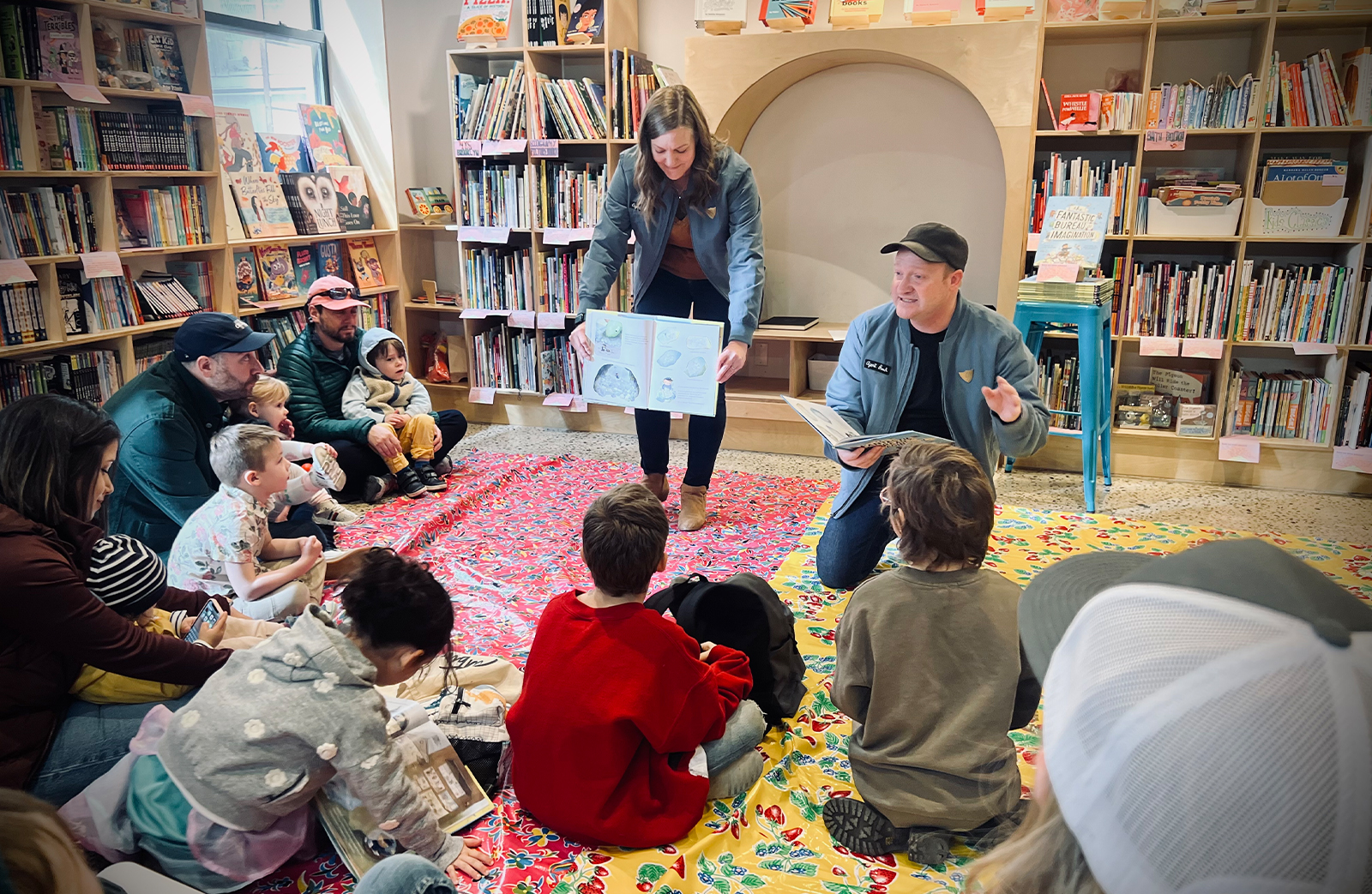
What advice would you give to young people who may struggle with vulnerability and the fear of failure in their pursuit of success?
Failure is not something to fear. It’s something to learn from! I used to see mess-ups as catastrophic. Now, I know mistakes can be catalysts for creativity and growth. The key is not to avoid failing but to fail better! So, we’ve been throwing parties for sharing failures and calling them Fail-a-Brations! Our newest book releases in September and is all about exactly that!
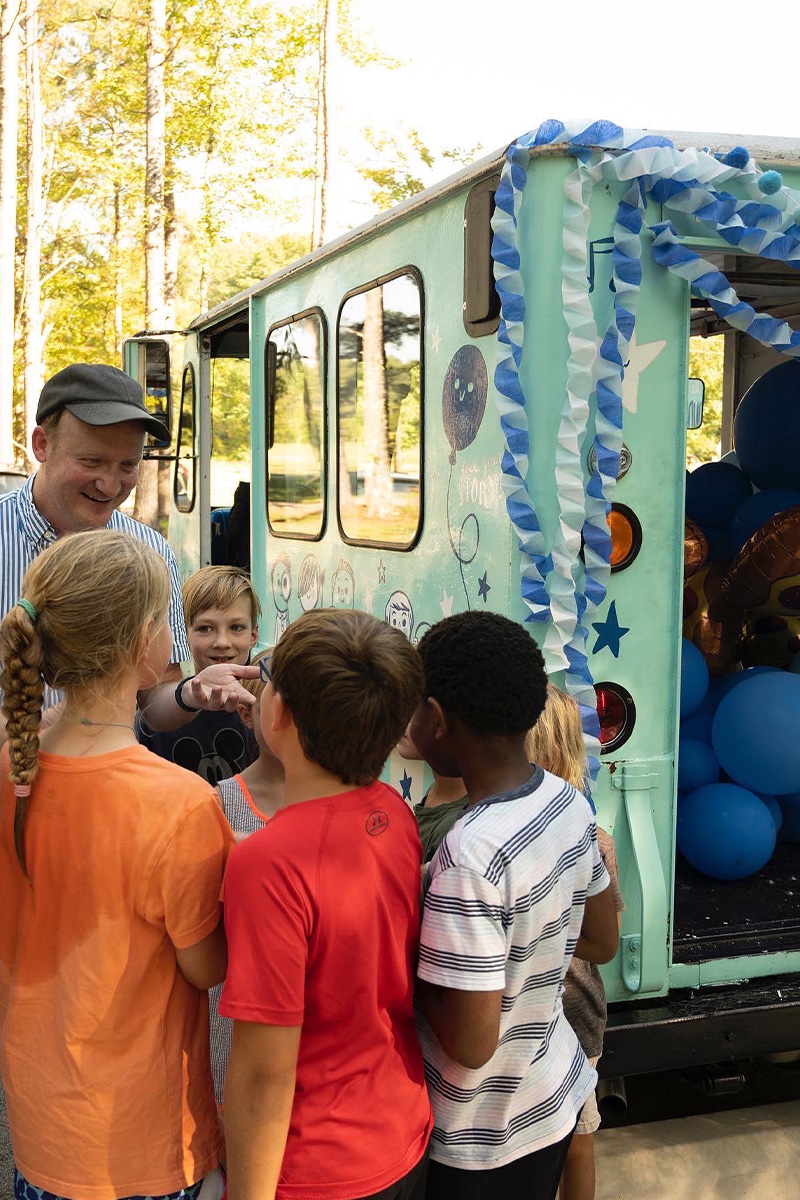
Brad with some young friends, sharing stories about creativity and compassion from his traveling “Wonder Truck;” photography by Kristi Montague.
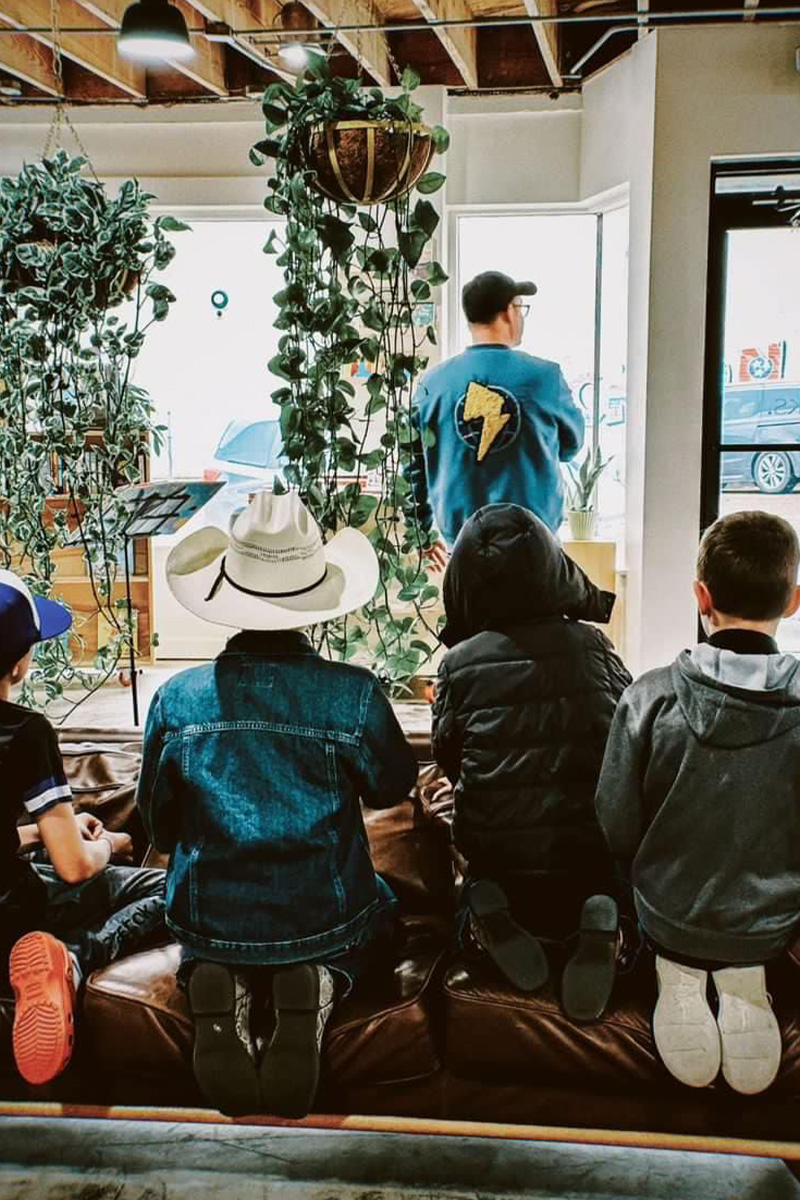
Brad at story time at his local indie bookstore, Light Trap Books, in Jackson, Tennessee. Kristi made Fantastic Bureau of Imagination jackets for just such occasions; photography by Ontoni Reedy.
How do courage and vulnerability show up in your work?
More and more I’m trying to silence that grown-up critic inside me and instead create with uninhibited joy. E. E. Cummings put it so wonderfully when he said, “It takes courage to grow up and become who you really are.” In my work, I’ve had the privilege of being around so many different children. The tenacity, grace, and grit of young people astonishes me. With my work, I’m always trying to bring myself and others back to that childlike place — a place of hope and possibility. It’s an invitation to remain open in heart and mind. Healthy kids are pure originals. They dance around with a holy curiosity about the world. They have joyful quirks and odd interests. This kind of courage is refreshing and rare but possible. That’s the goal.
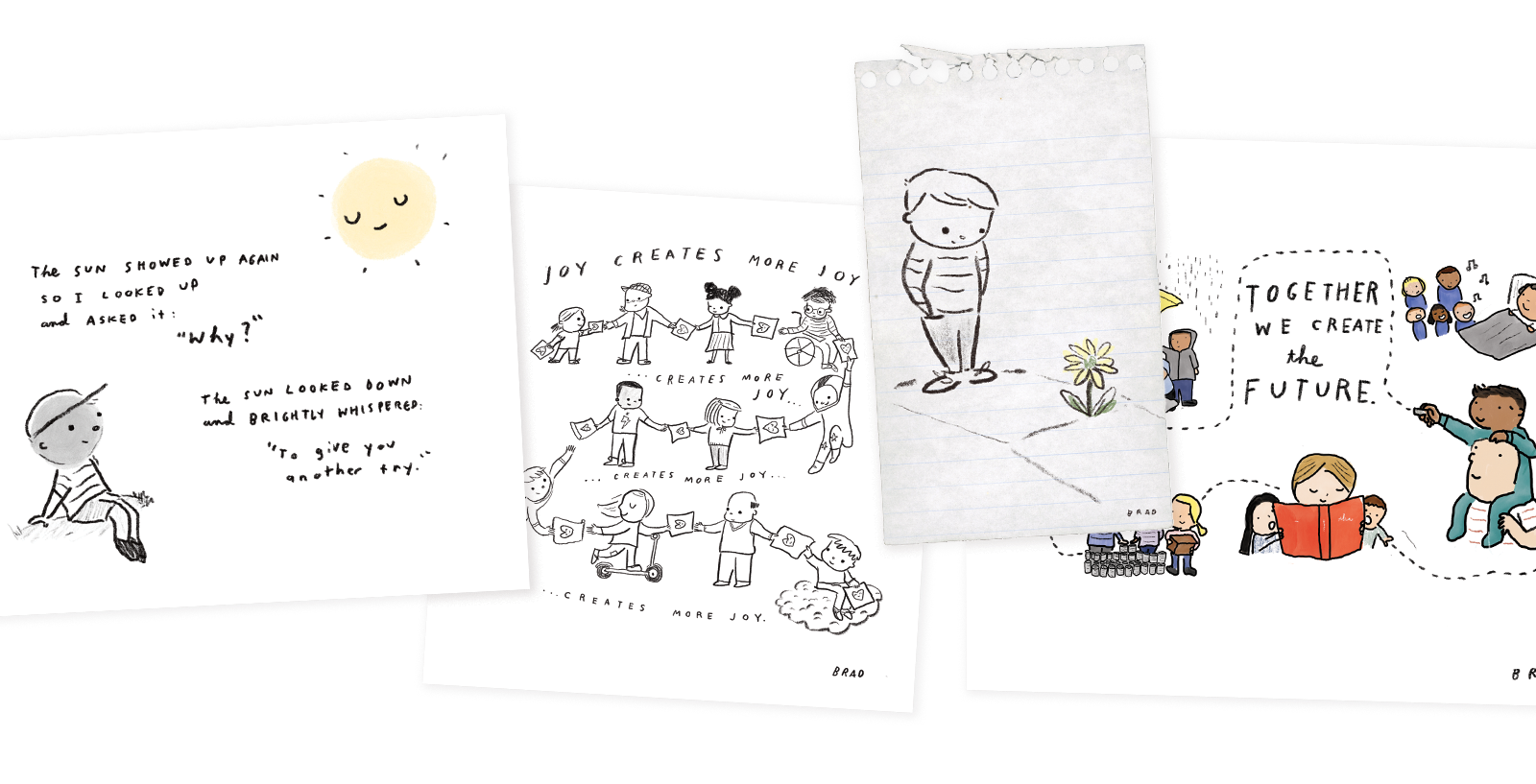
You’re an advocate of a “joy rebellion, fueled by a joyful vision of how bright things could be” — which, honestly, can feel hard when the world is so dark. Can you describe what it means to “rebel joyfully,” when “we’re drowning in information, but we’re starving for love”?
Toxic positivity says to ignore the bad and pretend there’s only good. Joy is rebellious. Joy knows there are challenges but shows up anyway. Joy knows there’s heartbreak but also knows there’s music. There’s an old expression — “Happiness happens but joy abides” — and I’ve found it to be true.
Conversations about joy can sometimes get tangled up in cute words. We think smiles, or kittens, or cupcakes with kittens on them. Those things are wonderful and I love them. However, joy is not cute. Joy is not just dessert. Joy is the meal. Our imaginations can get cloudy. We can lose sight of what’s possible. When we have a hope-filled vision of what could be, it inspires us to live as joy rebels. We see what is, but we’re swelling with joy for what will be. That kind of rebellion isn’t destructive. It defies all math and physics. It just creates more joy.
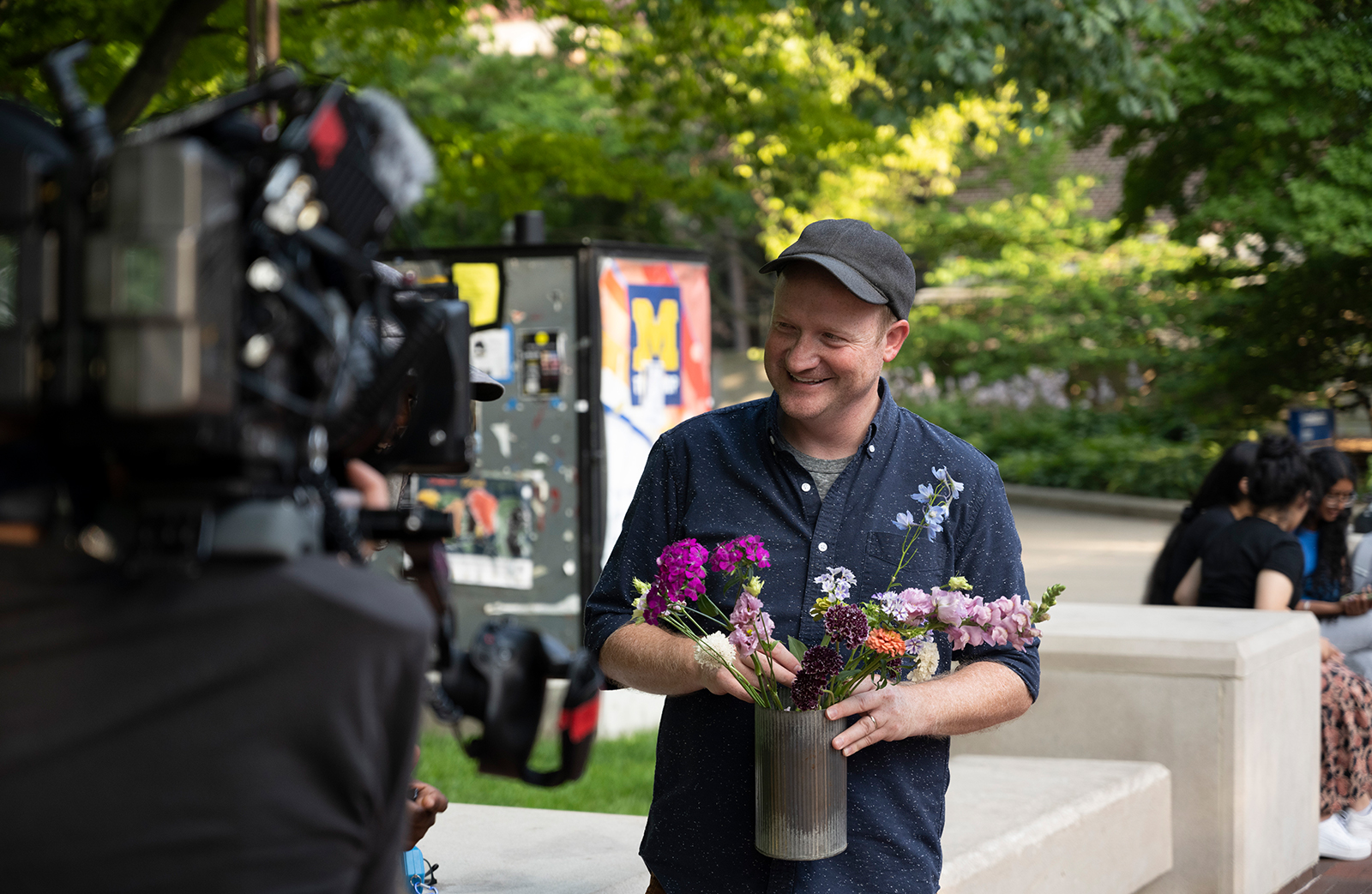
Joy is rebellious. Joy knows there are challenges but shows up anyway. Joy knows there’s heartbreak but also knows there’s music.
